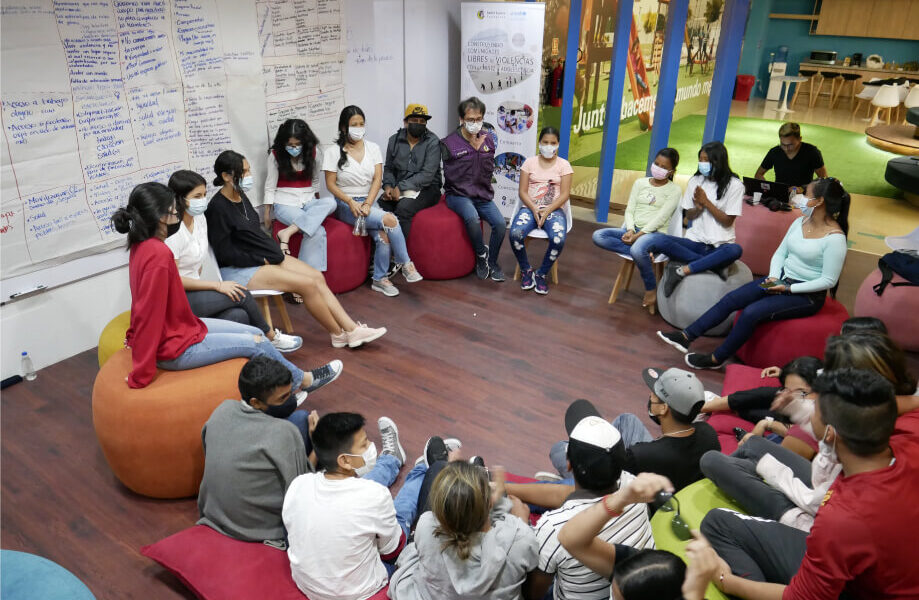By: Abel Ramirez
2021-11-04
Gender, in many ways, functions as a spearhead for collecting information about social, political, cultural and economic inequalities that, depending on the specificities of each human group and their contexts, affect women to a greater extent. The scenario, historically constructed to benefit us men, is full of symbols and meanings so that these conditions of inequality, inequity and violence are narratively and politically reinforced in the daily life of the subjects to the point of, for example, turning the roles of gender and its allocation in naturalized and normalized realities in which women bear the brunt:
Additionally, these social inequalities expressed mainly in forms of violence are permeated by a linguistic structure that, strictly speaking, materializes and naturalizes the different expressions of violence in the public and private spheres. Therefore, if we are clear that there are specific ways of communicating and that they are attached to the constant construction and resignification of our identities, it is not surprising that language reinforces the daily life of subjects with a symbolic load of oppression and exclusion with the capacity to limit the actions, in this case, of women.
In this way we are presented with a masculinized, sexist, patriarchal, androcentric and violent universe that affects the world and the decisions of women. We are facing social conditions that value men and women differently, an issue that involves a high level of invisible discrimination in which men do not find -or do not want to find- the ways to take responsibility and adopt a political position against the social inequalities and gender-based violence. In the midst of this structural framework, which is sustained by different types of violence, work on masculinities emerges as an opportunity to address, with different strategies, these types of violence from work with men. This under the idea that men have more advantages over women, since we sustain and reinforce social inequalities and gender-based violence.
The Lunita Lunera Foundation, since 2020 and with the support of Unicef Ecuador, has deployed a series of strategies to build a culture of peace in which we all have the same opportunities and freedoms. Part of the intervention is in the exercise of rethinking ourselves as subjects: actively participating in the transformation of the conditions of inequality and violence (agency), modifying the language and, above all, positioning ourselves as subjects with the capacity to cement a change that , in the long term, resignify the way in which we relate to ourselves, to other people and to the environment.
In this way, the work on masculinities carried out by the Foundation is nourished by three sources: i) a teaching-learning process in which the subjects receive content on topics related to gender, violence, human rights, human rights, sexual and reproductive, consent and language; ii) the construction of educommunicational products for incidence in specific localities; and, iii) the creation of political work agendas with men and the link, from the generation of commitments, with public institutions. From our committed, embodied, and activist experience, we have needed all this “thread laid” of joint and significant actions to twist and stretch the knowledge that collaborative work gave us.
Each axis worked on is, in turn, made up of community actions and replicas that are made visible in strategies such as the creation of news blogs, the staging of plays, the analysis and resignification of children’s and amorphous stories (musical genre composed of verses and rhymes), the recording of songs, short films and documentaries that highlight the intersectionality of oppressions, the construction of podcasts and radio programs and the appropriation of spaces to “save”/transform the neighborhood using bodies, where they defend something that concerns them, participating from neighborhood art to turn the world upside down.
All the activities, carried out by children and adolescents (NNA) from marginalized neighborhoods in the cities of Manta and Esmeraldas (coastal provinces of Ecuador), are constituted as part of an exercise that has the necessary tonnage to modify behaviors and propose solutions against femicides, create campaigns against sexual violence against children, put on the table the importance of the sexual and reproductive rights of children and build proactive men-subjects who enter into an extensive and complex process of (un)learning socialized behaviors in violence and in the constant struggle with our peers.
In this sense, the work with men and the initiatives of the Lunita Lunera Foundation and Unicef ultimately stem from the need to support processes linked to an institutional and cultural framework in order to work with a gender approach that encourages the construction of a society in which the gender identity, age or place of origin of people are not causes for having more or fewer opportunities for development, better jobs and/or better salaries.
In this way, we have concluded with proposals based on the construction of masculinity and the construction of an agency re-thought on diversity. The Culture of Peace has been sown and the shoots are visible. More watering please!
Abel Ramirez. Sociologist, anthropologist, specialist in Gender, Violence and Human Rights, Coordinator of the Unicef-Fululu Project, member of the Ecuadorian Network of Funeral Culture and the Ecuadorian Network of Masculinities, volunteer for Warmi-Org.
Translated by Damian Vásquez



